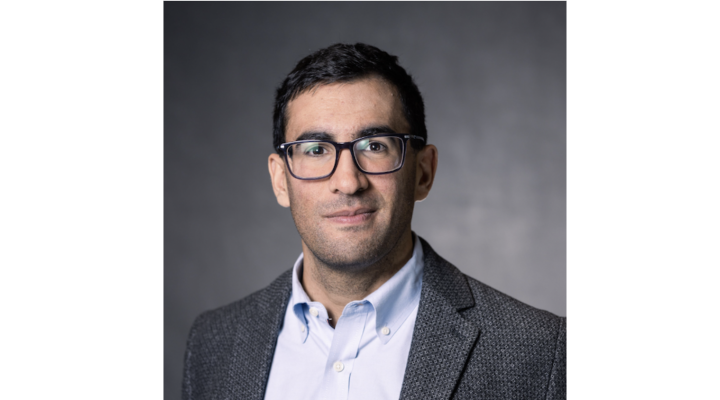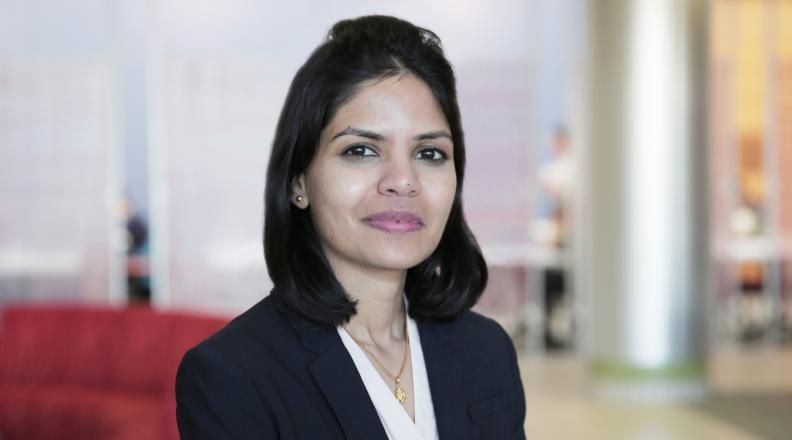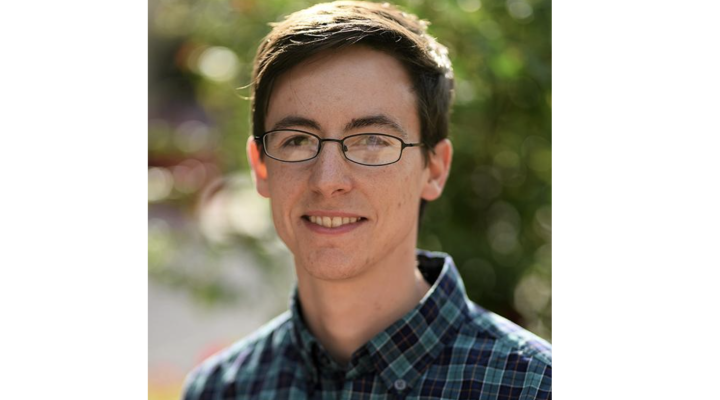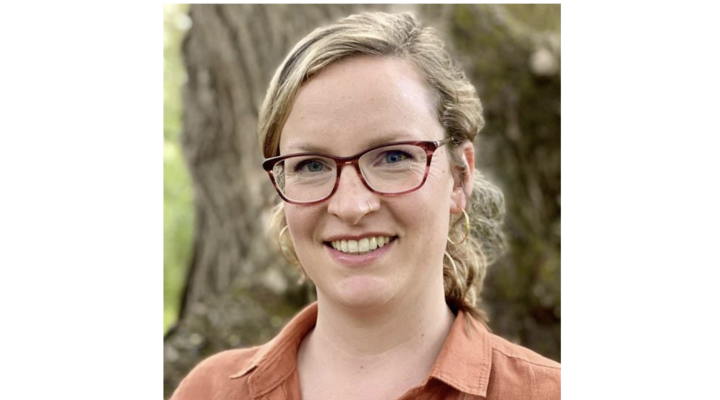Greeshma Gadikota has joined Cornell Engineering as an assistant professor and Croll Sesquicentennial Fellow in the School of Civil and Environmental Engineering (CEE). Gadikota’s research is focused on engineering the natural environment for sustainable energy and resource recovery as well as on designing novel chemical pathways for advancing low carbon and negative emissions technologies.
Gadikota received her B.S. in chemical engineering from Michigan State University. She then went on to earn an M.S. in chemical engineering, an M.S. in operations research, and a Ph.D. in chemical engineering, all from Columbia University. Before coming to Cornell, Gadikota was a postdoctoral research associate at Princeton University and at Columbia and she held a faculty position at the University of Wisconsin—Madison.
Gadikota grew up in Hyderabad, India. Her father had gone to graduate school in the United States and then moved back to India in the 1980s. “My dad was an idealist and at the time India was liberalizing and there was a national understanding about the need to industrialize and to produce things,” say Gadikota. “I grew up immersed in this energy given to action and doing and making things happen.”
Gadikota chose Michigan State for her undergraduate studies because “it was in car country—it was place where people built things, and that was important to me.” While earning her undergraduate engineering degree, Gadikota also took several economics courses and says she “learned about the American value of creating something out of nothing.”
From Michigan, Gadikota moved to Columbia University, where she earned a Master’s in operations research (O.R.). Gadikota saw firsthand the value an engineering mindset can bring to most any undertaking. “It was in the wake of the 2008 global financial crisis,” says Gadikota. “I saw that in a sea of economists an engineer can really stand out. Engineers know how to look at a system and identify pressure points.”
Gadikota calls herself an “accidental academic.” Shorty after receiving her Master’s in O.R. she went back to Columbia and started on another degree. Research into carbon capture and storage was taking off and Gadikota joined the lab of Ah-Hyung (Alissa) Park to pursue a doctorate in chemical engineering. “My advisor gave us latitude to explore different ideas and work on many different projects. I got to collaborate with many students. We got a LOT of science done!”
After earning her Ph.D., Gadikota remained at Columbia as a postdoctoral researcher with a joint appointment in chemical engineering, earth and environmental engineering, and the National Institute for Standards and Technology (NIST). “This was a great opportunity for me to see who was doing what work and, more importantly, where the gaps were—what work was not getting done,” says Gadikota. She then moved to Princeton, where she had a second postdoctoral fellowship focused on work that was more computational in nature.
She spent two years at the University of Wisconsin—Madison as an assistant professor of civil and environmental engineering and then she joined the faculty at Cornell in 2019. “I have always had an affinity for the State of New York,” says Gadikota. “And the chance to come to Cornell Engineering, where there is a strong expectation that you will push boundaries, would be hard to turn down.”
The U.S. Department of Energy recognized the boundary-pushing nature of Gadikota’s ideas this year with an Early Career grant. The grant will fund Gadikota’s research into developing clean methods for producing clean energy carriers such as hydrogen, while at the same time capturing and converting the carbon dioxide created into a useful and environmentally harmless solid.
One thread of her research involves using X-ray scattering, tomography and spectroscopy techniques to observe chemical reactions as they happen, possible allowing researchers to develop a method of producing hydrogen without creating greenhouse gases. More broadly, Gadikota would like to develop a method for observing the reaction environments for any solid-liquid-gas system. In an August interview Gadikota said, “We want to uncover the whole story, and by doing this we hope to develop techniques that are scientifically universal.”
Gadikota is also studying the feasibility of pulling acid gases from dilute and heterogeneous gas streams and understanding how reactive fluids and solids behave in extreme subsurface and engineered environments. She directs the Sustainable Energy and Resource Recovery Group at Cornell.





